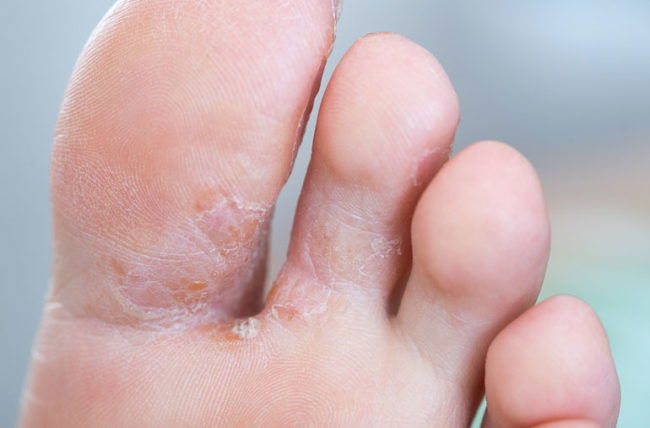Fungal Infections

Fungus grows very rapidly in moist, dark places with little ventilation. A fungal infection occurs when fungi multiply and become inflamed. This can happen internally in the organs or on the outer layer of the skin and nails.
Fungal infections of the skin are often called ringworm or tinea. Microscopic fungi, called dermatophytes, thrive on dead tissue such as the outer layer of the skin and nails.
The most common types of fungal infections of the skin and nails are:
- Tinea barbae—along the beard and jawline
- Tinea capitis—occurs on the neck and scalp
- Tinea corporis—occurs on various parts of the body, such as the arms, shoulders and face
- Tinea cruris—known as jock itch, involves the groin area
- Tinea pedis—known as athlete's foot
- Tinea unguium & tinea versicolor occur on the nails
WHAT CAUSES FUNGAL INFECTIONS?
Fungal infections occur because the mold, mildew or yeast spores are touched or inhaled and develop into an overgrowth in or on the body. Depending on the conditions, these infections can be superficial or serious. Under conditions of moisture, warmth and irritation, these fungi grow rapidly and may cause serious illness.
Superficial fungal infections can be caused by an overgrowth of existing fungi or can be the result of contact with an infected person or contaminated surfaces and objects. Fungal infections can be easily spread through bed sheets, towels, and clothing. They can also spread from one part of the body to another by scratching.
Fingernail fungus or tinea unguium has been linked to methyl methacrylate, which is a glue used for attaching acrylic fingernails. This condition can be quite serious and difficult to treat, because the environment between the real and artificial fingernail provides precisely the conditions in which fungus thrives.
Systemic fungal infections are often linked to the soil. Usually, they are contracted when fungi spores in the soil get inhaled when soil is dug up or blown around in the air. They can be a chronic problem for people with suppressed immune systems.
HOW TO TREAT FUNGUS
Treatment is available...Come see the Dermatologist for specific treatment.
LONG TERM RESULTS
Most infections improve with treatment within several weeks. It is important to note, however, that many fungal infections do not respond to treatment. It can take prolonged periods and many treatment methods before there is any response.
PREVENTING FUNGAL INFECTIONS
Several important steps can be taken to prevent fungal infections. Practice good personal hygiene, skin should be kept clean and dry. Avoid artificial fingernails. Household sources of fungus such as showers, bathtubs, and floors should be maintained by cleaning regularly with warm water and a disinfectant.


